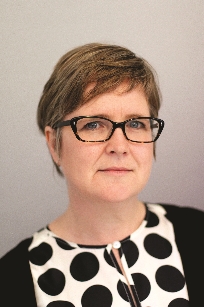Providers reject criticisms over subsidiaries
A report by the providers’ body said subsidiary companies were a vital tool for trusts to enable them to respond to a range of challenges. Trusts have been actively establishing wholly owned subsidiaries since 2010 and, for much of that time, they have been uncontroversial, it added.
Trusts have long argued that the VAT system puts them at a disadvantage compared with private organisations carrying out similar activities. While setting up a wholly owned subsidiary would generate VAT savings, the report insisted the motive for creating subsidiaries differentiated the NHS from others. It said there was a difference between setting up a wholly owned subsidiary to make savings that are reinvested in frontline care and using a subsidiary solely or primarily to obtain VAT savings.
NHS Providers also rejected concerns that wholly owned subsidiaries have been set up to employ staff on lower wages. It said that, when transferred, staff retain their employment rights, terms and conditions and pension rights. New staff may be on different terms, but it contended that these contracts often offered flexibility on pay and pensions that attracted staff who would otherwise not consider working in the NHS.
Subsidiaries were not back-door privatisation as they are an alternative to outsourcing services to the private sector and they are 100% owned by NHS organisations, it added.
Saffron Cordery (pictured), NHS Providers deputy chief executive, said: ‘It is important that people understand why NHS trusts are turning to wholly owned subsidiaries, and to address some of the misleading and inaccurate arguments that have been made.
‘They are set up for many reasons which vary depending on local circumstances and needs. But trust leaders are clear they have become a key tool to deliver the current strategic requirements expected of them. And they have a record of delivering practical benefits for trusts, staff and patients.’
The suggestion that trusts set up wholly owned subsidiaries to avoid VAT or that they are a back door to privatisation are ‘inaccurate and misleading’, according to NHS Providers.
A report by the providers’ body said subsidiary companies were a vital tool for trusts to enable them to respond to a range of challenges. Trusts have been actively establishing wholly owned subsidiaries since 2010 and, for much of that time, they have been uncontroversial, it added.
Trusts have long argued that the VAT system puts them at a disadvantage compared with private organisations carrying out similar activities. While setting up a wholly owned subsidiary would generate VAT savings, the report insisted the motive for creating subsidiaries differentiated the NHS from others. It said there was a difference between setting up a wholly owned subsidiary to make savings that are reinvested in frontline care and using a subsidiary solely or primarily to obtain VAT savings.
NHS Providers also rejected concerns that wholly owned subsidiaries have been set up to employ staff on lower wages. It said that, when transferred, staff retain their employment rights, terms and conditions and pension rights. New staff may be on different terms, but it contended that these contracts often offered flexibility on pay and pensions that attracted staff who would otherwise not consider working in the NHS.
Subsidiaries were not back-door privatisation as they are an alternative to outsourcing services to the private sector and they are 100% owned by NHS organisations, it added.
Saffron Cordery (pictured), NHS Providers deputy chief executive, said: ‘It is important that people understand why NHS trusts are turning to wholly owned subsidiaries, and to address some of the misleading and inaccurate arguments that have been made.
‘They are set up for many reasons which vary depending on local circumstances and needs. But trust leaders are clear they have become a key tool to deliver the current strategic requirements expected of them. And they have a record of delivering practical benefits for trusts, staff and patients.’
Related content
We are excited to bring you a fun packed Eastern Branch Conference in 2025 over three days.
This event is for those that will benefit from an overview of costing in the NHS or those new to costing and will cover why we cost and the processes.